VCU GSWS professor works to improve the university that she was never meant to attend
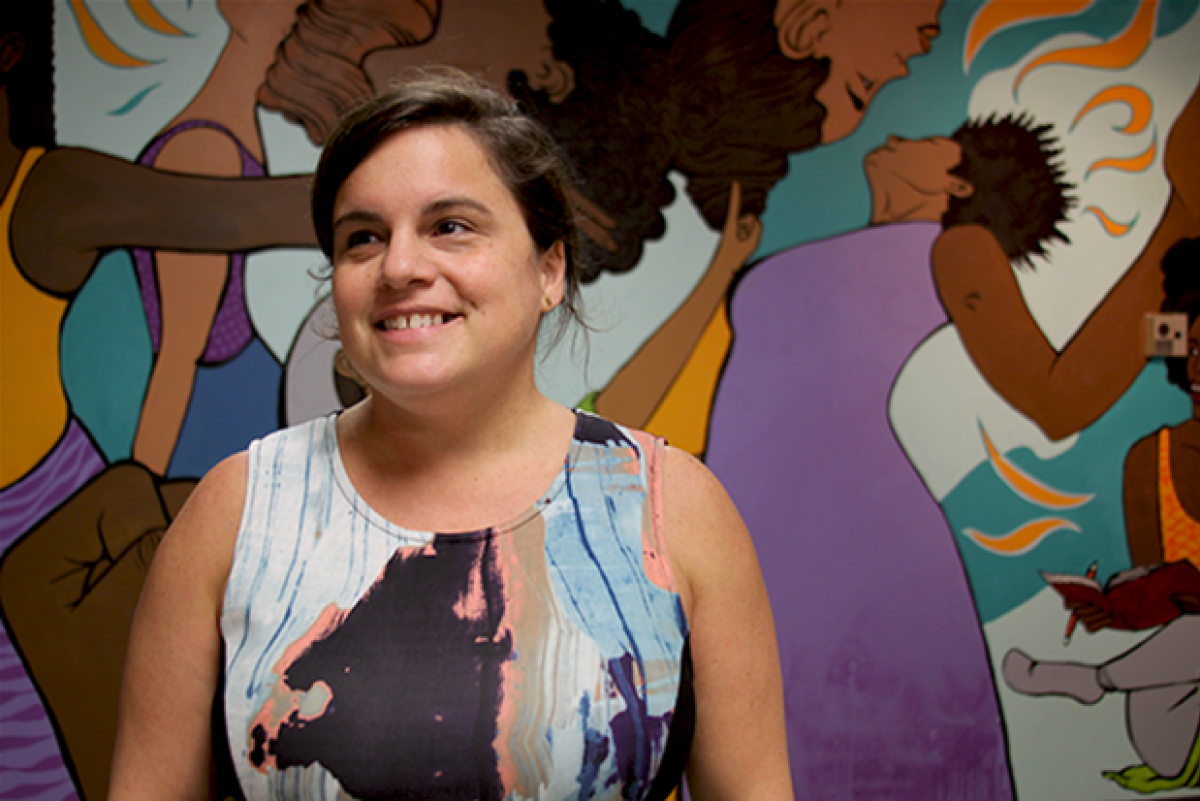
Deflected from her medical school dreams, Liz Canfield dug into activism and abolitionist thought
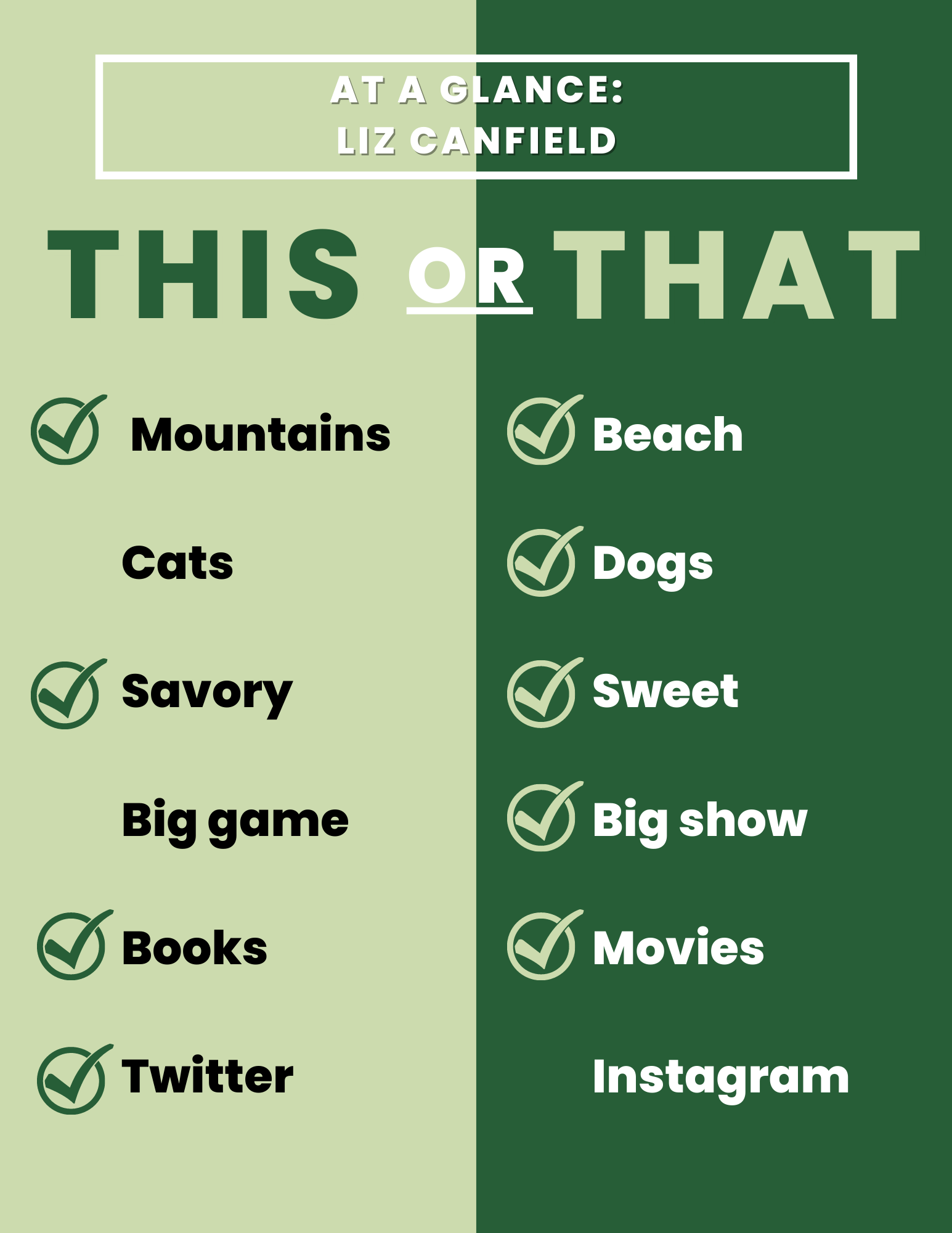
Attending VCU opened countless doors for Liz Canfield, Ph.D., who comes from a working class background and a family history of substance use and incarceration. “I wasn’t meant to go to college,” she said. But she did–multiple times, in fact–and graduated from VCU with a bachelor’s in English; a master’s in creative writing and poetry; and a doctorate in media, art and text. Today, Canfield is an associate professor and associate chair of the VCU Department of Gender, Sexuality and Women’s Studies and an iCubed scholar, currently the co-chair of the Intersections in the Lives of LGBTQIA+ Communities core.
Canfield’s academic path wasn’t linear; she initially enrolled in VCU with intentions of becoming a doctor.
“Like a lot of younger folks who come to college, I was like, I’m going to go to medical school. I’m going to pick the job that was the most financially secure career,” Canfield said.
She pursued her then-dream of being a doctor and worked at bars and restaurants throughout undergrad, paying for her tuition in cash. During the medical program, she also worked in a hospital emergency room on campus.
“I realized that I’m too empathetic,” Canfield said. Back then, the emergency room was heavily occupied by folks who couldn’t afford to go to a doctor. “We would get cases that were lost causes, folks who were going to die,” she said. “So lots of fatal gunshot wounds, fatal stabbing wounds, just some really messed up stuff. And so I kind of had a meltdown.”
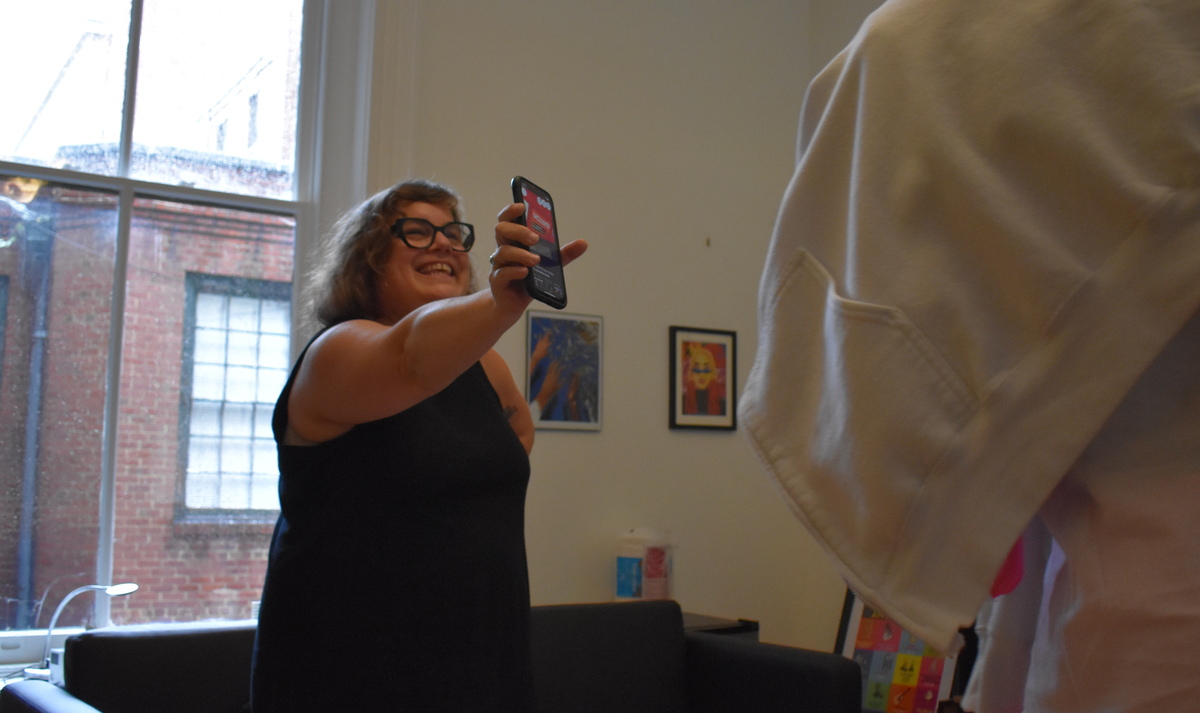
The emotional toll of the medical field informed Canfield’s decision to switch programs and study English. She’s been in Richmond ever since. Her first teaching gig was as a substitute for high schools, and she quickly fell in love with it. To this day, Canfield says her students always blow her mind with their ideas and enthusiasm.
“VCU students are the best in the world, I think. When you look at our students and you talk to them and hang out with them, you’re like wow, we have such beautiful diversity. And not just visible diversity like racial, ethnic or physical disabilities,” Canfield said. “But we have parents [as students], we have grandparents. We have people who come from lots of money who sit right next to someone from public housing in East Richmond. And that’s pretty awesome.”
THAT’S LOVE.
Canfield has a passion for improving the university and prison systems. At VCU, she is on the College of Humanities and Sciences Strategic Planning Committee, co-chair of the iCubed Intersections in the Lives of LGBTQIA+ Communities core and is the Monroe Park Campus representative for Faculty Senate.
I think part of the passion I have for the university system not working is it didn’t work well for me.
Liz Canfield
“VCU suffers from the same illness that all PWIs [primarily white institutions] suffer from, and that is that we’re too capitalist,” Canfield said. “It’s like everything is siloed off. Everyone’s in competition with one another for funds, funding resources, etc.” She says she prefers collaboration over competition, and finds that a more sustainable model.
“VCU, in terms of its relationship with the communities in which it finds itself, keeps kind of growing, growing, growing, colonizing, colonizing, colonizing, that relationship is extractive, it’s not reparative,” Canfield said.
She says this is a problem most universities face, not just VCU. It’s an uncomfortable truth to face. How, one wonders, can someone with these beliefs and experiences spend nearly 30 years at the very same university? Canfield doesn’t hesitate to answer, “That’s love. If you tell me you love me and I do something messed up, I’d want you to tell me.”
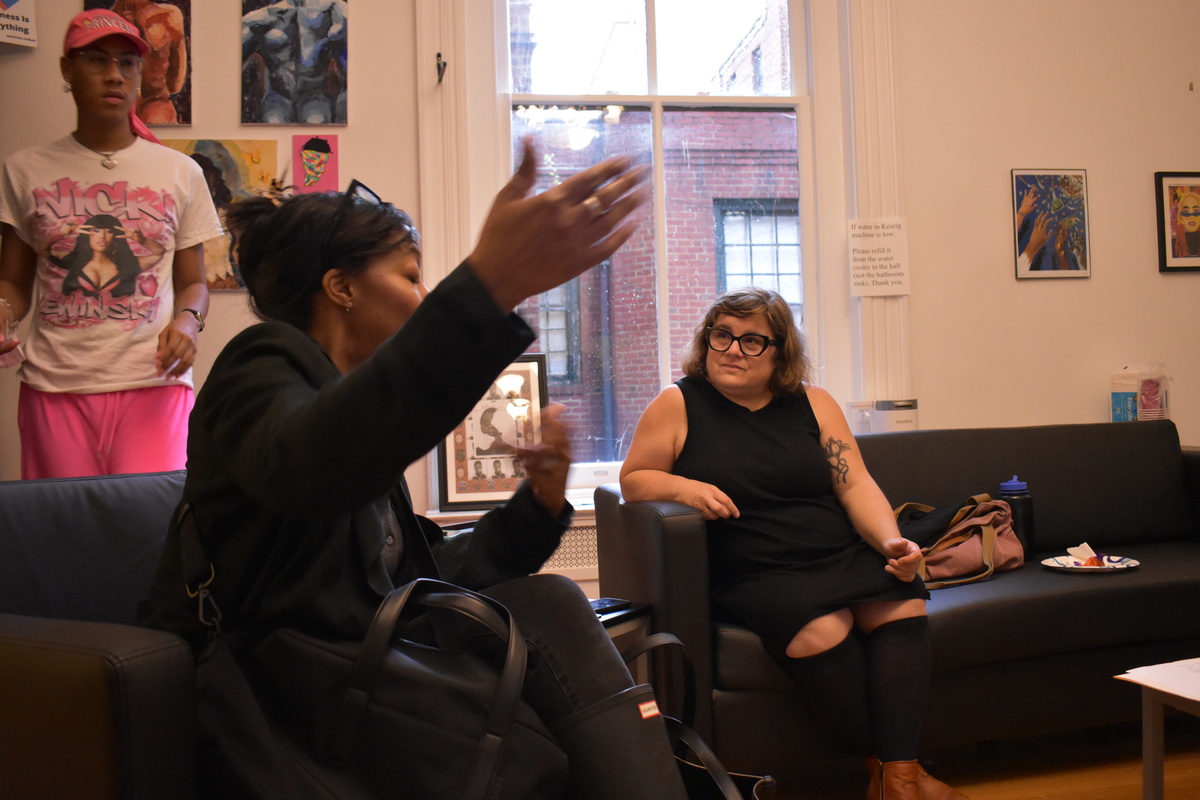
To love something is to want it to be better. It’s a belief that Canfield holds true, and it has greatly informed her relationship with the university.
“I think part of the passion I have for the university system not working is it didn’t work well for me,” Canfield said. When she began studying at VCU, she didn’t see her experience reflected in the university’s programming or curriculum. But she kept moving forward and eventually found like-minded people along the way.
JAIL MAIL
Today, she finds connections through many different communities around campus, including her own Jail Mail program. Jail Mail is an open opportunity for faculty, students and staff from all departments, and community members to come together to write letters, make zines and prepare care packages for prisoners in the Richmond City Jail and LGBTQ prisoners in the U.S.
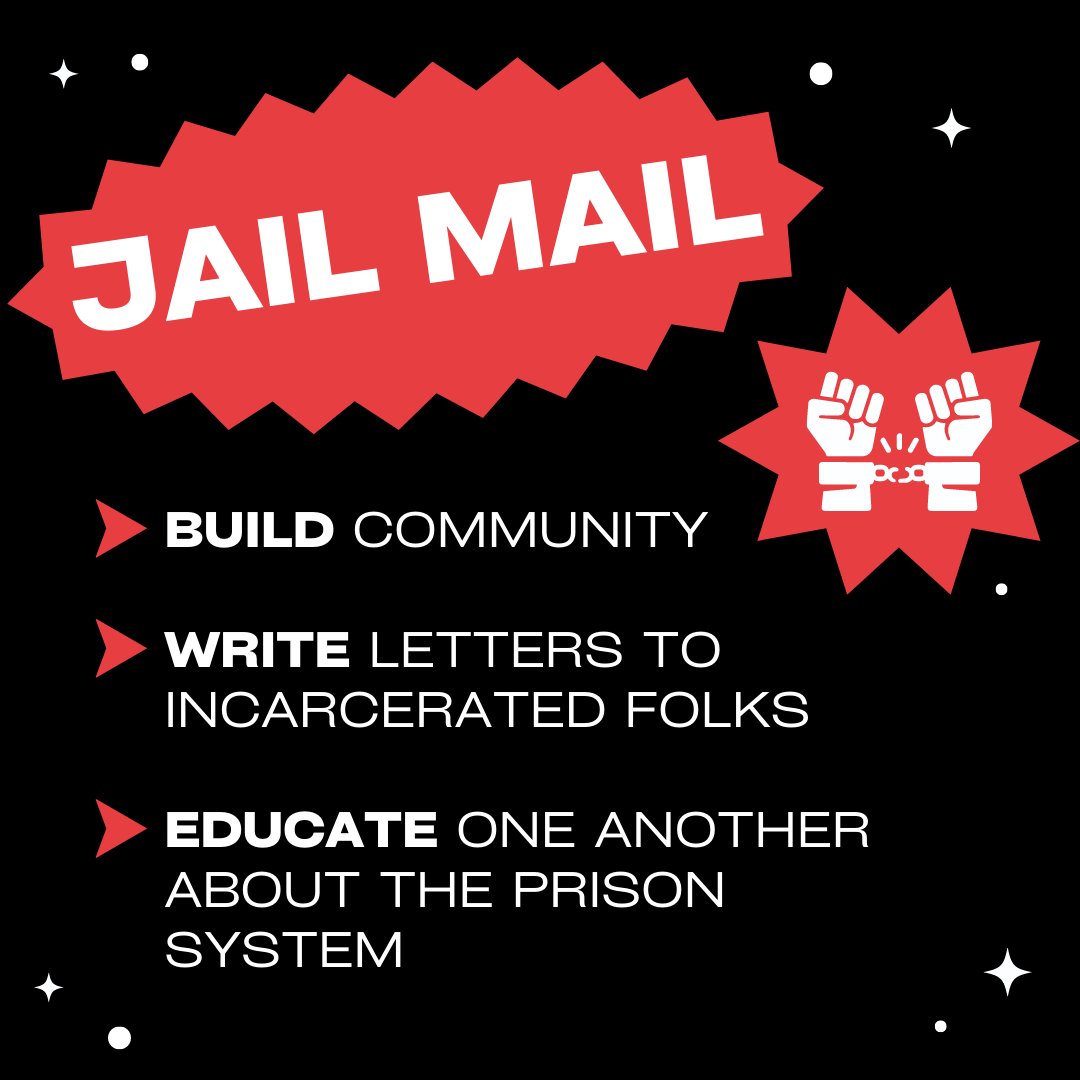
At one of these Jail Mail meetings, Canfield says that for her, the word “abolition” doesn’t evoke images of tearing things down. Instead, it’s about imagining and building something new that honors our shared humanity. She strives to incorporate abolitionist thought into everything she does. For example, she is an abolitionist neighbor, organizing with her community to find ways to resolve conflicts without calling the police. She is also an abolitionist teacher, breaking down barriers between professor and student and participating in a union for university campus workers.
Shawn Williams, a senior majoring in African American Studies and English, attests to Canfield’s work of building better systems than we currently have. Williams took one of Canfield’s classes during their freshman year and the two have kept in touch ever since, bonding over a shared passion for organizing and activism. Williams currently helps Canfield run the Jail Mail program.
“One thing about Liz is that she doesn’t care if you call her Dr. Canfield,” Williams said. “She tells all of her students, ‘You can call me Liz.’ And that one notion is enough to break down so many barriers so that you can connect with more people. Liz just has that attitude about her that she’s not above anybody else because of her positions or her degrees and stuff like that, which I really appreciate.”
“She’s constantly looking towards the future generation, and that’s why she’s able to make so many connections with people from varying backgrounds and ages,” Williams said. “Liz has been doing abolitionist thought activism for years, and she’s not stopping any time soon.”
Editor’s Note: Diversity Drives Excellence Profiles introduce you to some of the diverse faculty and staff members whose work makes VCU such an uncommon and amazing university. The Office of Institutional Equity, Effectiveness and Success (IES) publishes the profiles on its blog and promotes them across its social media channels. Please send questions or comments about this series to ies@vcu.edu.
Categories Diversity, iCubed